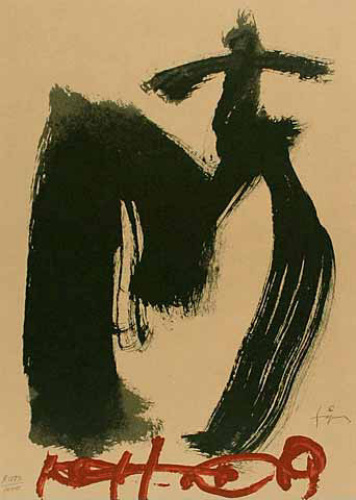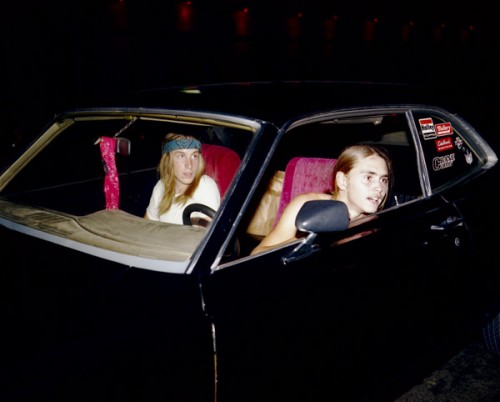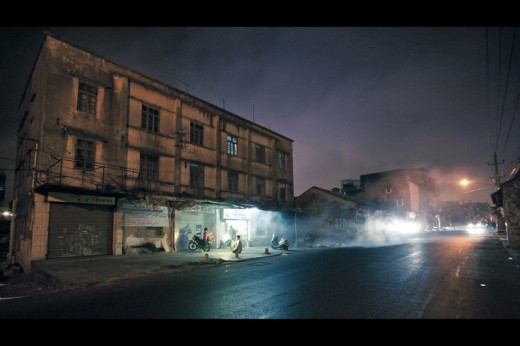
““Remember, any state, any state, has a primary enemy: its own population.”
Noam Chomsky
“It is almost always the case that a “spontaneous” movement of the subaltern
classes is accompanied by a reactionary movement of the right-wing of the dominant class, for concomitant reasons.”
Gramsci
There are all these narratives out there right now. The public discourse is in constant process of developing or erasing certain of these narratives, or finding that they often overlap. Edward Snowden’s saga seems to have become a lightening rod for *some* of them to come together. Yet, in all cases, one thing remains constant, and that is that the last thing the U.S. (and most of Europe, certainly the U.K. and France and to a slightly lesser degree, Germany) populace can imagine is a world without capitalism.
I think many people *do* know that the primary unspoken idea in the majority of public narratives is that Capitalism, the profit motive, and its attendant exploitive nature is in fact the root cause of some specific problem — but so deeply etched is the basic storyline of Capital, that these brief bursts of recognition are quickly subsumed in practical matters of survival. The Capitalist state, circa 2013, has a vast surplus population. And it’s a problem. No matter how quickly new prisons are built, this surplus population will outpace it.
Several news stories, besides Snowden’s, are illustrative of this (and more on that below) but what has happened to a vast swath of the U.S. public is that they seem to have perfected (or come close) to accepting narrative contradiction. Now, there are growing numbers of people who see clearly that the state is out there to punish dissent or punish organizing at a community level. Still, there are in that still quite substantial middle class…(really, the working class who have enough leverage to buy the appearance-even to themselves- of stability and privilege)….who will basically accept the master narrative as a piece.
There are several ways the mass media treats Snowden…..and one is with mockery….(below link with David Letterman and Tom Brokaw).
http://videos.mediaite.com/video/Leno-Brokow-061313
and another is with rabid snarling calls for arrest and a trial for treason (Dick Cheney, Dianne Feinstein, et al). Now, even with the liberal arm of the media (and one might identify Letterman as nominally liberal) you find the ideological backdrop is always quite clear. The narrative is performed by those with privileged positions within the system. What is left out, and yet is available in hundreds of historical studies, documentaries, and even a handful of movies, is that US history began with extermination, and has exercised brutal and bloody repression around the globe ever since its founding. It is not a secret, not any of it. And yet the comfortable white class in the U.S. is forever turning away. And they turn away with ever greater irritation at the subject being brought up.

Obviously the closer to present time one gets, the more pure propaganda may still be at work (think the Milosevic trial, Rwanda, and Chavez) and the further in the past one looks the more a sort of simplistic apologetics is firmly in place — along with a concurrent secondary narrative that says *progress is inevitable and sometimes that means there are casualities*. This is the new historicism of the Right. But I find among the liberal educated class that what has been consumed, and held to, is an idea that is quite close to that of the far right. The sub heading of this narrative is: *nothing much really changes….its all happened before, its been around for years, etc*. Its comfort zone cynicism. I say “comfort zone” because it is an unreflective and willful indifference to historical fact.
Things such as:
http://www.historyisaweapon.com/defcon1/zinnbaron11.html
OR

“The accumulated bones of perhaps 1,200 Chinamen came in by the eastern train yesterday from along the line of the Central Pacific Railroad. The lot comprises about 20,000 pounds. Nearly all of them are the remains of employees of the company, who were engaged in building the road. The religious customs of the Celestial Empire require that, whenever possible, the bones of its subjects shall be interred upon its own soil, and the strictness with which this custom is observed is something remarkable.
“DEAD CHINAMEN — Six cars are strung along the road between here and Toano, and are being loaded with dead Celestials for transportation to the Flowery Kingdom. We understand the Chinese Companies pay the Railroad Company $10 for carrying to San Francisco each dead Chinaman. Six cars, well stuffed with this kind of freight, will be a good day’s work. The remains of the females are left to rot in shallow graves while every defunct male is carefully preserved for shipment to the Occident.”
Elko Independent, January 5, 1870.
OR:
http://www.umwa.org/?q=content/ludlow-massacre
OR:
I mean the list can go on for volumes. I chose a few cases where the narrative has been co-opted and domesticated and even aestheticized. And which were part of domestic repression. US foreign policy is not a secret really, it’s just been expressed within a carefully prescribed set of jingoistic codes. It is propagandized.
What does the average educated liberal think when you ask them about The Shah of Iran? What do they say when you ask about US occupation of the Philippines? What do they say when you ask what happened in Rwanda? Or what happened in the former Yugoslavia? I wonder, though, domestically, and this one I honestly don’t have an answer for….its not a rhetorical question…but what does the term “mass incarceration” mean to most White Americans?

The answer to all the above will include in some way, an ideological backdrop in agreement with the status quo. And the status quo is white patriarchy, and it CAPITALIST.
Several other news items sort of cut across the Snowden story; the first being the George Zimmerman trial.And in particular the defense cross examination of Rachel Jeantel. The history of U.S: race relations, and of white surpremicism, has rarely been given such a clear presentation.
Justin Peters wrote:
“Racial and socioeconomic stereotypes play differently in different contexts. The statements and mannerisms that make Jeantel a laughingstock now might have made her a viral video star outside the courtroom. As I was watching Jeantel’s testimony and the subsequent reaction, I couldn’t help thinking about Aisha Harris’ Slate piece from May about the “fairly recent trend of ‘hilarious’ black neighbors, unwitting Internet celebrities whose appeal seems rooted in a ‘colorful’ style that is always immediately recognizable as poor or working-class.” Charles Ramsey, Antoine Dodson, Sweet Brown—these people caught white America’s attention in part because they so blatantly violated normative behavior. If Jeantel would’ve been filmed saying “That’s retarded, sir” to some reporter on the streets outside her house, the Internet might well be singing her praises. Black people are celebrated when they play the fool in the proper setting.”
(full article here..http://www.slate.com/blogs/crime/2013/06/28/rachel_jeantel_witness_in_george_zimmerman_trial_gets_the_trayvon_martin.html
Meanwhile, star New England Patriot tight end Aaron Hernandez was arrested for first degree murder.
Hernandez came out of the notoriously corrupt Florida football program of (at the time) Urban Meyer. Hernandez has had frequent run ins with the law, and with NFL drug policy (cue laugh track), but due to his untouchable status as star athlete….star FOOTBALL player, in a state where football is both a cult and an economic safety net for an otherwise depressed area of the country, Hernandez never had to deal with anything in the way or repurcussions.

Urban Meyer left Florida and its program in disarray but was quickly hired by Ohio State with a big bump in pay. Just win baby. Black people feature in corporate media as either selfish pampered athletes (oh, and over paid) and as comedy relief from the serious white news stories of the day. Of course what is left out is that 99.9% of young athletes, black and white, end up with nothing more than a few injuries, often serious, and that while the tiny fraction of elite stars do make obscene amounts in salary, even those salaries pale before the income of team owners. Which brings up a side bar story on the Washington Redskin mascot.
Nicely compiled by Dave Zirin:
http://www.grantland.com/story/_/id/9376010/rename-washington-redskins
The status quo are the owners. The corporate media treats them as grandfatherly old gents, sort of a cross between Mark Twain, Burl Ives, and Nelson Rockefeller. Players are treated as selfish, narrow, vain and poorly educated. The meme of the black jock who got a pass at Notre Dame (or Penn State, or Alabama, or Texas, or USC or…etc etc etc) is familiar. Liberal cries for reform in education, for a “return” to scholar athletes (cue laugh track) usually follow and some cliched nostalgic bromides about a lost innocent america are given voice. This is the same status quo that sees in Rachel Jeantel a ghetto problem child, a future welfare abuser and just too lazy to learn how to talk *right*.
This is the same status quo that reads Edward Snowden as a high school drop out, and who shouldn’t be given such an *important* job with a high security clearance. This same white liberal is giddy however with the success of getting gay marriage on the books. The gay community in fact reacts collectively in ever more conservative ways. The narrative for equality in marriage is sentimentalized and made into horrid Huffington Post kitsch fluff pieces. The very term *human interest* is now coded for sentimentalized trivia. Snowden’s heroism, his selflessness, is simply re-imagined as craven cowardice….:”HE RAN AWAY” hisses the pundit class on TV. As if he had driven his pick up over a crippled six year old and driven off into the night laughing between chugs of Old English. Snowden is seen as weak, as amoral and lacking in that masculinity we see in…well….Aaron Hernandez.

The cognitive dissonance surfaces, though, in popular media. In a new TV cop franchise, Graceland, what we used to call a blue skies show, a group of very cute hunky and hot FBI AND CIA AND DEA agents all share a house on the beach in Santa Monica. During an opening episode, one of the young *rookie* FBI agents is asked by his superior why he wanted to be an agent. He answers, because my grandfather was a photographer, news photographer, for the Bureau back when it first started and J. Edgar once asked for him personally. The rookie agent leans back, wistfully gazing into a private distance and mutters something in awe struck tones about *what it must have been like then*. Now, an entire fifty years of FBI domestic spying, of COINTELPRO, of inflitrating student or anti war protests, of murder and racism and the illegal spying on men like Martin Luther King is all air brushed aside, and with a surfboard in the background of the shot, the audience is given a short hand nod of approval for institutional authority.
Now, I’ve no idea what the target audience might be for this piece of shit, but I suspect its young white males. And probably that cuts across a lot of economic borders. For this is the same narrative that gives the owner of the “Redskins” a pass, that makes heroic a damaged and violent young man like Aaron Hernandez because he has size and speed enough to play for the Pats, and, most importantly, its the same narrative that stigmatizes Rachel Jeantel.

It is important to examine these things in patterns, I think. George Zimmerman takes on a kind of position as victim in this drama, and Trayvon becomes associated with those uppity black jocks with too many tattoos who sign ten million dollar bonuses. Why was he wearing that damn hood anyway? If you have nothing to hide, you have nothing to fear. This is the voice of the fascist government echoing down the corridors of that court in Florida.
The new American gulag, the mass prison complex that now is increasingly privatized, has been written about by Jared Ball, by Glenn Loury, and others (Michelle Alexander seems to be getting a lot of flack for her new book, and while I think a lot of that criticism is right, I’m a lot less sure making Alexander a target is useful. Solidarity and all that). The reality is, though, that the same mechanisms of looking away take place at even the suggestion of this topic being raised. Its safe to talk about gay marriage. That victory in bourgeois symbolism is an easier bone to throw the nervous masses which had been following the airline connections for Snowden, than having to stage manage a difficult Vladimir Putin. In black and Latino ghettos and barrios across the country, and in poor white America, the issue of prison doesn’t go away.

Aaron Hernandez
The contradictions continue with the obvious lies of Democrats and Republicans alike. The absolute thievery of the big banks, the deceit and corruption that saturates the industry — yet who is the villain du jour on network news? Rachel Jeantel. I continue to try to see the underlying symbols for discipline and authority in all of this. Equality in marriage reinforces the structural elements of Roman inheritance law. Its progressive in the sense that gay couples can claim what are often much needed economic benefits, but its probably simultaneously launching a breakout industry in Gay divorce lawyers. Anything that grants legitimacy to the legal system shouldn’t be embraced too tightly. In the sad story of Aaron Hernandez, the legacies of chattle and slavery are not too hard to spot. The purchase of several shares of the Brooklyn Nets by Jay Z only served to point out his role as entertainment to the real power brokers. Big time sports are billion dollar businesses. Players are just, in the end, machinery that breaks down far too often. I don’t doubt for a second that bio-engineered athletes are just around the corner. Its just another form of automation. And into all this runs a current of discipline. One hears echos in the language of finance. Workers are advised to show financial discipline. Avoid risk. Nose to the grindstone. The entire fabric of regulations, laws, and statutes, and the ordinances to govern everything from milk to massage parlors is set up to assist in the protection of property and privilege. This is capitalism. To make money, you have to count it correctly. You have to keep track of it. And it is crucial to keep track of workers and slaves alike. The control of workers and slaves means that policies of spying are built into the system. Capital needs new markets to keep growing. Spying comes in handy for that as well. In fact, the U.S. has spent most of it’s existence in pursuit of the property and land and resources of others. In the end, the military serves much the same purpose as prison. If slavery evolved into practices of strict economic controls, Jim Crow, … and this bled into the lack of social mobility for blacks and poor whites as well, and then into a marginalized surplus population which today serves no better purpose than as slave labor, only from within prison factories. It’s interesting to remember Kowloon, the walled city (I wrote about a month or so back) which the authorities in Hong Kong allowed to exist for decades because what it was in reality was a fifty thousand person work force that accepted sub standard wages in return for limited auditing by authorities. This was a big help to the service economy of Hong Kong.
Today the US and its increasingly automated military finds prison the only option for this growing underclass of untrained and unemployed. But ask white America what it thinks if you utter the term “mass incarceration”. I don’t think any of what I just wrote would come to mind. If one were to compare the US prison complex to Stalinst gulags you would be met with derision. The narrative is different, the images different, the *characters* different. For most Americans today (except those, like the poor, in general) who have direct experience with the judicial system, prison is a place for VIOLENT men, rapists, murderers and armed robbers. There is running alongside these simplistic stories of state heroism, of police virtue, and the eroticizing of violence, a clear message about neo liberal *success*. The idea of the system is that it rewards the winner– even as God does, and that it is, itself, the winning system. This is a sub-text for almost every show on TV and nearly every studio film today. There may be reform needed, but who won? WE DID!

“Over the past four decades, the United States has become a vastly punitive nation, without historical precedent or international parallel. With roughly 5 percent of the world’s population, the U.S. currently confines about one-quarter of the world’s prison inmates. In 2008, one in a hundred American adults was behind bars. Just what manner of people does our prison policy reveal us to be?
America, with great armies deployed abroad under a banner of freedom, nevertheless harbors the largest infrastructure for the mass deprivation of liberty on the planet. We imprison nearly as great a fraction of our population to a lifetime in jail (around seventy people for every hundred thousand residents) than Sweden, Denmark, and Norway imprison for any duration whatsoever.”
Glenn Loury, from earlier this year, at Washington Monthly.
He continues…
” We have established what looks to the entire world like a racial caste system that leaves millions stigmatized as pariahs, either living behind bars or in conditions of concentrated crime and poverty that breed still more criminality. Why are we doing this?
The present American regime of hyper-incarceration is said to be necessary in order to secure public safety. But this is not a compelling argument. It is easy to overestimate how much crime is prevented by locking away a large fraction of the population. Often those who are incarcerated, particularly for selling drugs, are simply replaced by others. There is no shortage of people vying to enter illicit trades, particularly given how few legal paths to upward mobility exist for most young black males.”

Dan Snyder, owner, Washington Redskins
Criminologist Todd Clear (whom Loury quotes) has said the extraordinary number of men in prison, especially from black neighborhoods, has made incarceration actually less stigmatized. That level of state jurisdiction, state custody or monitoring, has normalized the idea of defeat and of an adversarial dynamic with authority….marking out a new social ecology for the young and poor, and again, especially, of black youth.
The mass culture creates narratives for this, creates tropes and familiarizes an audience with these social facts. The message is “humans are disposable….especially those who have failed, those who are losers”. The surplus population must be correctly labeled, and that label reads “DISPOSABLE”.


a nice addendum here…
http://www.counterpunch.org/2013/06/28/total-surveillance/
I’m not so sure about France. The French are among the most government-wary in Europe, and they’re far more distrustful of neo-liberalism than the German, English, or Italians. I thought it was common knowledge the French have long had an “uneasy” relationship with the notion of unquestioning embrace of capitalism.
it depends. The French left has certainly, at times, been active. But its a the paradigm bourgeois nation (the word is french isnt it!!)……….and they’ve not veered at all from their overriding business interests, their neo colonial involvements in africa at the moment, so Im not sure about this *common knowledge*. France is as capitalist as any country in the EU….not more so, but as much. I have a hard time making distinctions on that front between any of them.
Yes, I see what you’re saying, but I do feel the English and French mentalities to be worlds apart as far as the “people” are concerned. I try not to lump all European countries together. Sure, they have cultural similarities, but they are still different cultures after all, even if ‘those in power’ might be interchangeable regardless of country.
So yes, France is the paradigm bourgeois nation, but just about every major French artist from any medium has made it his or her modus operandi to activiely criticize this aspect of French society. I don’t find that to quite the same degree in the work of Anglophone artists. If it’s there, this sort of questioning of bourgeois mores isn’t always as patently obvious as it is in the work of French artists, and I think that certainly says something about the French mentality. And if it’s there in the work of someone like Dickens or Hitchcock it’s probably more on a subconscious level. And that’s not a criticism of either group of artists, merely an observation.
I’d say in France just about all believe in the state – from right to left. Really even the anarchists. Everyone believes the state necessary and has a role in hiuman affairs. Liberalism of all sorts has a hard time there, from economic (neo)liberalism to civil libertarianism. The few real libertarians in their intel tradition hall of fame are fashy and retainers of the state, ultimately devoted to and dependent on the state – Foucault for example. Badiou says withdraw from the state but he only means those democratic feartures – he is a lifetime state retainer and a devoted reproducer of the state institutions that reproduce him. But this general agreement on the state means on the left a very good grasp of ruling class praxis and how it can be confronted and checked by people power.
there is a lot of anticapitalist feeling in France. Polls run about 70% anticapitalist – 70% of people hate capitalism and think it’s unjust and destructive. Popular sentiment is socialist and, a smaller group of anticapitalists, bascially fascist.
anyway…great post. People are weird about race and the new production of caste i find, as if the races we have are somehow valid/natural somehow and the ones being created now are artificial. It is as if people really believe in a biological negro race. Jodi Dean our favourite zizney blonde made a comment on facebook suggesting she believed in “pure races” and racially pure and impure individuals; alongside her chatter about “the people” and its “will”, always just a portion of the population, fused by will…and other rather creepy things…its stark. I did a crazy thing today and watched all these “mixed girl tag” youtube videos; its startling. On the one hand there is a lot of affirmation and good consciousness, on the other very disturbing signs of this kind of 19th century race theory restored (somehow, how? when?) – Henry Louis Gates’ show I guess is another factor cause/consequence (never saw it). But the combo of this and the obvious rapid rolling out of all this technology of a global prison, a vast camp system, is pretty darn freaky.
@remy, molly;
yeah i had hoped you would comment on france Molly. And thats interesting, though I might argue that 70% anti capitalist isnt quite anti capitalist….but thats sort of the heart of the question I guess. How we get outside this enclosure of thought.
I saw where some blond anchorwoman on FOX called native americans “essentially illegal aliens”. It is just this level of deformed thinking around race that I think Jeantel demonstrated, and the reactions…both black and white by the way…..demonizing her, because she didnt conform to a standard of docility and appearance and speech that is increasingly demanded by the Spectacle. So…Remy, yeah, its interesting to read british writers and french writers in light of how those Imperialist nations dealt with colonial subjects after indenpendence. Thats worth a whole discussion.
I mean I had sort of assumed race, as a paradigm, had been finally put on the shelf. But clearly Im naive. I mean I thought, at least in educated circles people had kinda internalized the facts about the invention of race…..but maybe its time to write more about that and how perception of race intersects with constructs of masculinity and femininity …. with identifications of moral or good, etc.
I just read through a fb thread with people applauding Obama’s visit to Mandela’s cell on robben island. These were white folks, middle aged, educated, but not intellectuals by any means. They had exactly zero consciousness of the PR at work. None. Its useful to be reminded those folks are out there in greater numbers than we sometimes think.
gender and race – as an alternative to the conception of “intersecting oppressions”, Sylvia Wynter promotes a notion of “genre” of persons, its similar to an idea of raced gender and gendered race. The enlightenmenty cataloguing abstraction of “race” “gender” “class” as distinct – even for the purposes of analysis – is problematic; these are terms adopted from systems of oppression not created by their dissidents, analysts and challengers. Race and class in particular exist as a opposites in discourses that are apologetics for imperialism – the notion being that race is a property of the individual, regardless of context, and can be a neutral descriptive, that class is the opposite an empty position in context, regardless of the properties of the individual filling it. This is undialectical idealist thinking. For the purposes of critical legal studies, intersectionality was an excellent approach – because the aims are clearly to comprehend the individual’s condition confronting a state and legal complex of instititiutions and to protect the individual in that confrontation. This approach is less illuminating for analyses of a larger scale – a scale that doesn’t de-emphasize imperialsim.
Im not sure I fully follow that, to be honest. Especially regards class.
I do sometimes feel the term “bourgeois” gets tossed around too loosely and unfairly to the point that anyone who fails to lead a life characterized by pure altruism is somehow nothing more bourgeois screed. We need to acknowledge the “animal” inside ourselves and others at times, and in a sense simply understand human nature while not placing ourselves above the rest of humanity since, after all, we’re all human. It’s natural that everyone reaches a certain point in their life where they crave certain basic “bourgeois” comforts, such as a roof over their head and three satisfying meals a day. All great artists have egos, and at the end of the day, they all desire a certain level of “bourgeois” recognition and Not all the time, but sometimes we just need to accept the basic “flaws” of humanity. It’s not about tolerating “bourgeois complacency” but rather about accepting human nature. That’s the problem with dogmatic socialism/communism. It simply goes against basic human nature. Most people don’t want to live in 15 square meter state-owned tenements their entire lives.
There was a typo in the above comment. Sorry:
All great artists have egos, and at the end of the day, they all desire a certain level of “bourgeois” recognition and a secured place within the top tier of the pantheon of their respective medium. That’s just an example. Not all the time, but sometimes we just need to accept the basic “flaws” of humanity.*
“Oh, Il aime faire du ski? C’est bourgeois.”
“Il aime ballader dans Le Louvre? C’est bourgeois.”
“Il aime boire un peu de Bourdeaux? C’est bourgeois.”
“Il aime voyager en Inde? C’est bourgeois.”
“Il aime des huitres? C’est bourgeois.”
“Il est prof a la fac? C’est bourgeois.”
Like where does it stop for crying out loud?
However, I will say John that in defense of your observations regarding France and other EU countries, there does some to be quite a bit of middlebrow snark towards the legacy left behind by the French New Wave and “European art house cinema” in general among French people who were perhaps too young to get the whole “sixties” experience. That’s just an example, but I guess it serves to partially prove your overarching point.
@remy:
well…..ok, the problem is that the term “human nature” is basically flawed. There is no human nature. We arent born wanting to have iPhones or born wanting orange juice with breakfast. And while dogmatic anything is bad, the idea of socialism most certainly doesnt go against this phantom human nature, if what is meant is that somehow people are born wanting capitalism, born wanting commodities or something.
This is an important topic, or lesson….or something……because its one of the sort of drum beats of the conservative pundits…….socialism cant work because it goes against human nature. The other one is always socialism defeats initiative.
This is all linked to some idea that money is part of nature. Its funny because my next post deals with this directly …..i was working on it today…..should be up tomorrow. I think its very hard for a lot of people to imagine a world without capitalism. ANd this is because everyone thinks in terms of personal comfort being linked to financial accumulation……we buy our comfort. We work and we earn our comfort. Of course everyone wants comfort over discomfort. That has nothing to do with socialism, however. The idea of marxist thinking, if Im VERY reductive, is that EVERYONE gets to have comforts. Not just the privileged…because therere wont be a privileged……… And there is no reason everyone cant be comfortable and have health care and work at things they enjoy and fell connected to.
I mean lots of people…..lots of artists I know…..never sought out financial success. Today thats less true….sadly. But its not something that is inherently embedded in the creative process. Peer recogntion……sure……i mean one creates for an audience and there isnt anyway around that. A few people dont create for that reason, and historically, lots of people created as part of another model of the social . Some created for the Church, for god, and others created for more metaphysical reasons. Just to be prosaic…..Bresson never wanted success. He has a janist catholic and I remember his wife came and spoke at the film school. ANd he sounded very sort of meditative and scared of success for very valid reasons. These ideas about bourgeois taste and so forth …they do have historical implications and origins…..but in fact, it is only recently that the idea of an “author” even existed per se. This was the evolution of the bourgois identity……the well off trader wanting his portrait painted…..its all rather complex to get into here….but the cult of “genius” went along with this. I suspect some of these things existed in other forms earlier…..expertise…the virtuoso is something that can be linked back to ancient egypt……but it wasnt then linked or mediated by capital……and i cant say this often enough I guess…….capitalism is not some structural social paradigm granted by God. Its an historical arrangement. And human nature doesnt exist as such. Its the training of those with authority and power that inculcate these notions that such things are there…….it simplifies complex questions…..’oh, its just human nature’.
this is not the best, actually, to explain some of this…..but its what i have handy…..http://uregina.ca/~gingrich/s28f99.htm
I never meant to imply artists are motivated by financial success but rather peer recognition which in turn leads to canonization even during their lifetime in some cases, although it may not necessarily make them wealthy.
You make some valid points, but my argument isn’t that humans are inherently greedy therefore capitalism is okay, but rather that most people have a sense of self or an ego if one wants to see the glass as being half empty. Like you said, many artists may still desire peer recognition, and this still ties into the whole issue of one having a sense of self. With that said, all I meant to say is it seems a bit unfair to label anyone who strays at all from pure altruism as being bourgeois. An artist seeking peer recognition is not purely altruisitic, since they’re still looking out for themselves on some level even if money is the least of their concerns.
I may not care about “financial success”, but if someone aspires to create work within a certain ‘artistic medium’ there’s certainly that voice in the back of his or her head that thinks, “Oh, wouldn’t it be nice if you were one day mentioned alongside Dostoevsky, Proust, Degas, Gorky, Ozu, Balzac, etc.” That’s all I’m saying.
So Bresson may have been wary of success, but there’s a difference between Jonathan Franzen/Cecil B. Demille success and Proust/Debussy success.
i dont see where anyone has said lack of altruism is bourgeois.
Has nothing to do with it. You have to reflect on things like “success”-. These are pretty weighted terms, and i think sort of mystify the topic. But….as i say, a lot of this is in tomorrow’s piece.
Okay, well maybe I was just getting a bit reactionary, since I feel like I’m having a bit of a quarter life crisis. I’m entering my mid-20s and am starting to feel that pressure to give into the “man” so to speak before I wake up at 35 and realize I’m still living in a tiny studio, as I feel I haven’t yet “done much with my life”. Perhaps you have some advice on how one can avoid “giving in”, as this is certainly something that would tie in with the overarching theme of your blog.